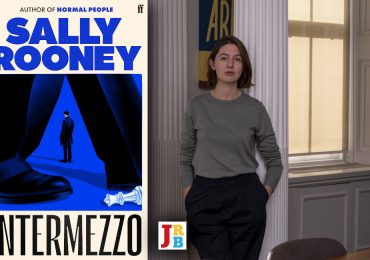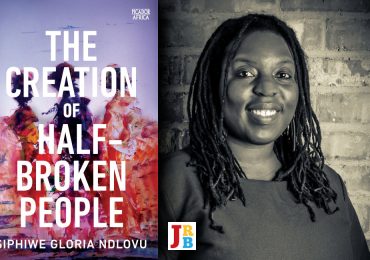The JRB City Editor Niq Mhlongo and Zukiswa Wanner have both just published new books—Soweto, Under the Apricot Tree and Hardly Working: A Travel Memoir of Sorts, respectively—and are both currently on fellowships from the Johannesburg of Institute for Advanced Study (JIAS). In this piece they reflect on their experience so far. Don’t miss Mhlongo’s account, elsewhere in this issue, of their joint book launches in Harare.
Towards the second half of last year, former Johannesburg for Institute of Advanced Study Fellows Yewande Omotoso and Fred Khumalo alerted us to the call for applications for the prestigious fellowship, then in its fourth year. The fellowship, a collaboration between University of Johannesburg and Nanyang Technological University in Singapore, would grant us a small honorarium per month while we wrote, as well as provide a roof over our heads in vibrant Westdene, and, finally, ensure there was food in our stomachs. As we both had had manuscripts we were working on, applying was a no-brainer. Being in the fellowship would buy us time to write without worrying too much about bills back home. It seemed an opportunity not to be missed.
We would later learn that there had been over three hundred applications, so we were naturally excited to be among the chosen eleven. Not only would we now have a space to do our work, but one often fantasises about being chosen for a fellowship alongside an artist one likes and respects, and we were both getting this. Essentially, then, this was sort of a literary version of the Big Brother Africa house for the two of us—except that we would also be living with fellows who were from disciplines other than writing. The fellowship would begin on 31 January and will end, four months later, on 31 May.
For the two of us, being full time writers, working from JIAS is much like our normal lives, except that the daily noises that exist at home with our families—whom we love—are removed. The monthly honorarium for the fellowship is also an important part of our stay, as it ensures we worry less. But perhaps the greatest benefit so far has been the interaction with the Fellows from other disciplines. Informally, this happens during lunch, when we all gather together at our long table. Formally, each of us is expected to present a single seminar during the course of the fellowship on the work we are undertaking, and it is here where the interdisciplinary nature of JIAS enriches each and every one of its Fellows, giving us a glimpse of fields we may not have previously been familiar with.
A seminar by Kenyan biochemist Geoffrey Maiyoh, who is working on a book on cancer, for instance, taught us that cancer is most prevalent in Western countries. There are, however, three exceptions on this continent, where cancer is as high as in the Western world: South Africa, Kenya and Zimbabwe. This essentially means that one of us, who claims Zimbabwean and South African heritage and lives in Kenya (it’s Zukiswa if you haven’t guessed), has a higher chance of getting cancer … As scary as that is, we also learnt that less than five percent of cancer victims inherit the disease; rather, it is largely a result of lifestyle, and if certain things are avoided, there is a smaller chance of falling victim. So we should not require a Department of Health warning about listeriosis to make us avoid processed meats. And, of course, a lack of exercise is a major contributor. This made us feel bad enough that we are now walking to places we would normally Uber to.
Another seminar, by Wits academic Joel Quirk, focused on modern-day slavery. As part of his critique, Joel highlighted how NGOs against slavery almost always seem to focus on sex work, along with the sort of slavery involving sub-Saharan young men and women as seen on CNN in the not-too-distant past. But what the major narratives around modern-day slavery appear to neglect is the virtual slavery that is occasioned by a lack of labour rights. Labour rights organisations see this lack, in fact, as modern-day slavery for capital. This seminar really hit home for us. You see, the staff at JIAS are, in many ways, working under what labour rights activists would term slave conditions. The management of JIAS can do little about it, as they are not a legal entity, and the decisions to give, for example, the staff contracts must come from the mother body, the University of Johannesburg. Until we objected, for instance, the staff were working seven days a week, coming in on Saturdays and Sundays to make us breakfast, as though the Fellows were incapable of doing even this small task for themselves. We breathed a sigh of relief when the resident manager asked us whether we would be okay if the staff took off work on Human Rights Day, 21 March—which of course we were. But our relief turned to horror when, just before lunch, we saw one of the staff at the Institute. One of us asked what he was doing at work and he answered that he had been asked to come through to serve lunch. Essentially, then, some staff did not even get to have a public holiday off, despite very much being members of the public.
And so, as progressive as JIAS is, and as educational as it has been, being there, we cannot help but think that the unjust rules the staff work under perpetuate an elitist division between them and the Fellows. At a time when many institutions in South Africa are recognising the importance of contracts for employees, so as to reduce the blatant, discriminatory inequality that has existed in South Africa’s exalted academic halls since colonialism, we hope that the University of Johannesburg management (now with a new Vice-Chancellor) will get on board and give the hardworking team that looks after JIAS some dignity. It is wrong for any employee to have the sort of working conditions that the JIAS staff have; and the problem is compounded by the fact that they are such a dedicated team. It would be unfortunate if it remained the case for much longer that an institute of higher learning is not as dedicated to its staff as they are to the university itself.





